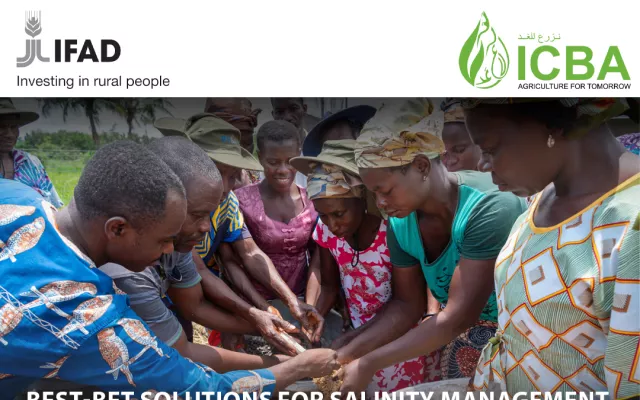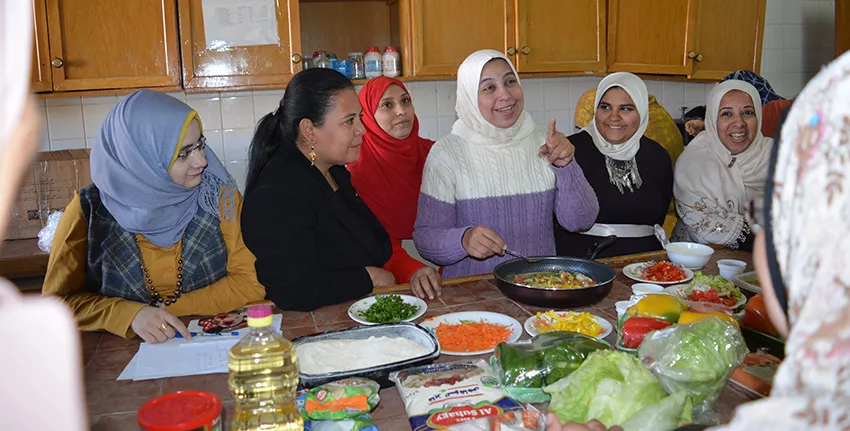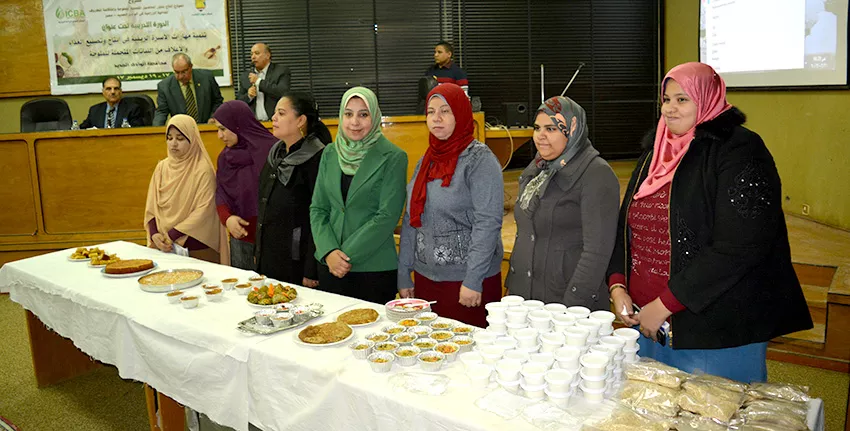Rural Egyptian women take to quinoa
19 December 2017
More and more women in rural areas of Egypt are warming to alternative salt-tolerant crops like quinoa thanks to efforts by the International Center for Biosaline Agriculture (ICBA) and its partners.
Under a project running from 2015 to 2018, ICBA has been promoting alternative climate-resilient crops in Egypt. As part of the project, ICBA has established a seed production model for several salt-tolerant crops that form the core of climate change adaptation efforts.
Funded through the Securing Water for Food (SWFF) program by the United States Agency for International Development (USAID), the Swedish International Development Cooperation Agency (Sida), and the Ministry of Foreign Affairs of the Netherlands, the project has so far reached over 2,000 rural Egyptian farmers, including 1,000 direct beneficiaries.
In cooperation with several organizations, ICBA has developed an integrated approach to enhance agricultural production and address the impact of climate change in marginal areas in Egypt. This approach includes the development of more resilient genotypes, optimized resource management, and enhanced crop and livestock production. One of the priorities of the approach is to ensure availability of seeds of climate-resilient crops, which are not available commercially. The project has, therefore, helped to establish a seed production system to meet the growing demand among farmers.
In 2017, the project focused on rural women and families with a view to ensuring they also benefit from the initiative. As part of this work, ICBA organized a course for over 150 people, including 120 women, on 17-19 December 2017 to train them in the production and processing of food and feed from salt-tolerant crops. Among the participants were representatives of an agricultural directorate, farmers’ associations, agricultural extension services and non-governmental organizations such as the New Valley chapter of the National Women’s Council (25 women leaders).
During the course, all women participants were given hands-on training in preparing dishes from quinoa. They tried around eight quinoa recipes to prepare appetizers, salads, main courses and desserts. On the last day, all women participants were given free packs of quinoa grains to practice and prepare recipes at home for their families.
The event was held in collaboration with the Desert Research Center, Egypt, under the auspices of New Valley Governorate.
Led by Dr. Abdullah J. Al-Dakheel, a senior fellow at ICBA, the project team has conducted more than 12 training programs and workshops on a wide range of topics, from selecting climate-smart crops like pearl millet, sorghum, barley and quinoa, to processing seed to preparing dishes with salt-tolerant crops.
As Egypt faces severe water scarcity and salinization of some 25 to 40 percent of its irrigated agricultural land, it is important that alternative salt-tolerant crops like quinoa are not only adopted by farmers, but are also accepted by women. As demand grows, supply will also have to catch up, meaning more and more farmers will be turning to climate-resilient crops, which have been hitherto rarely cultivated.











